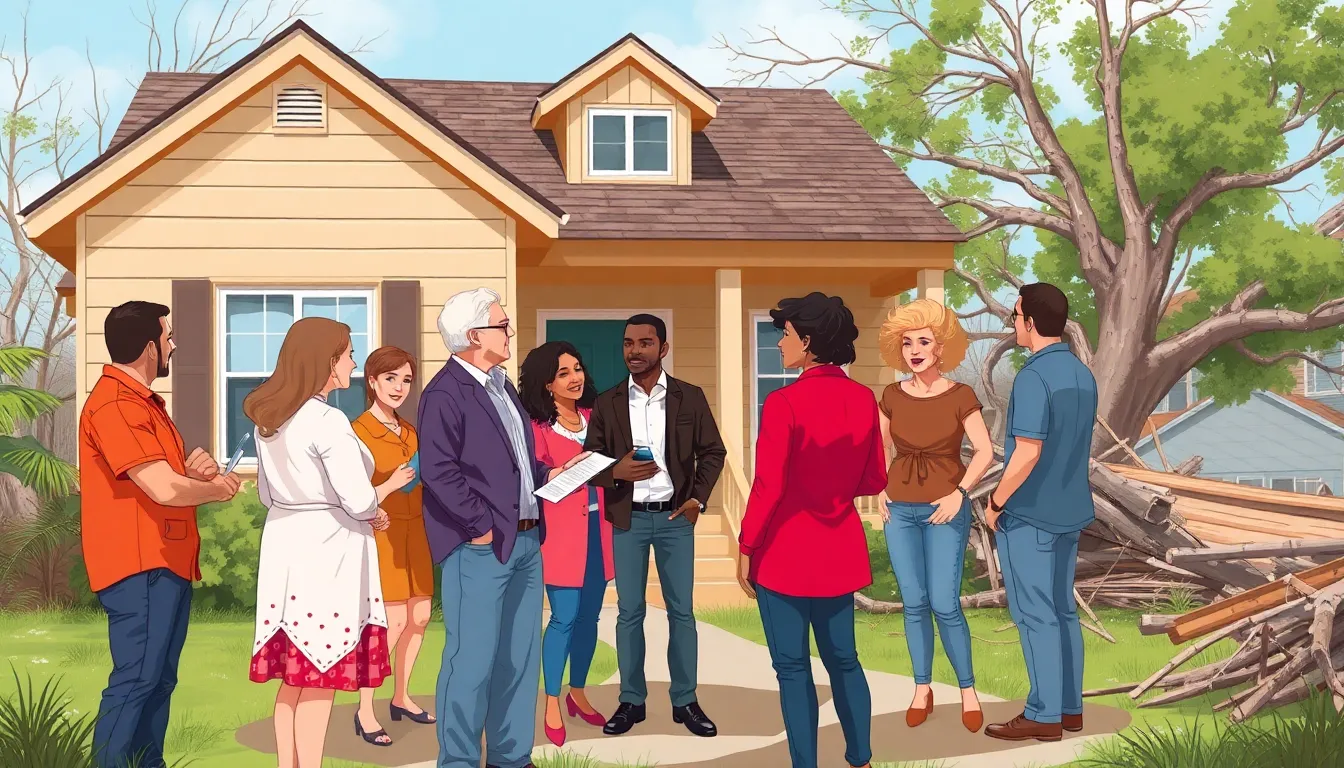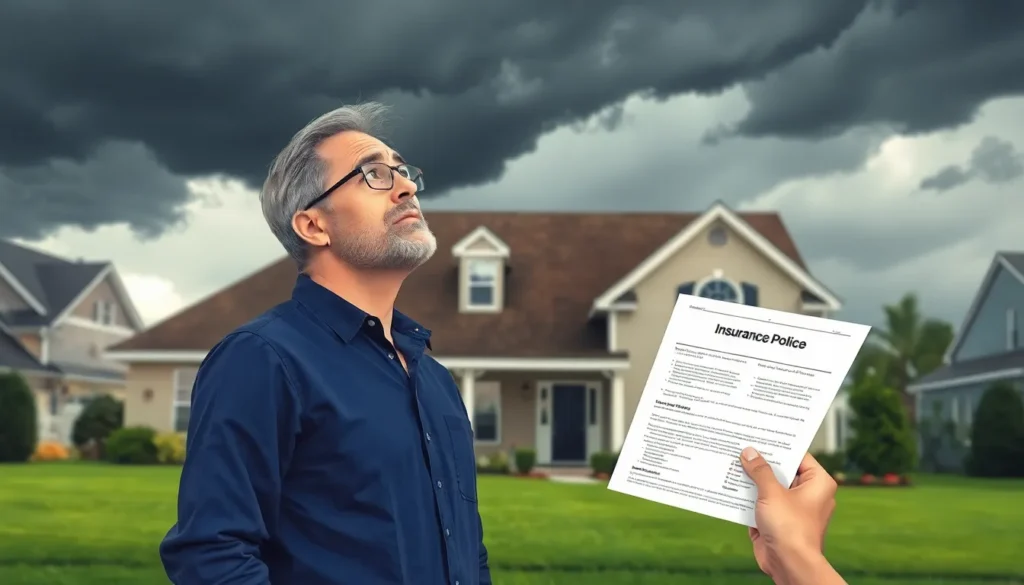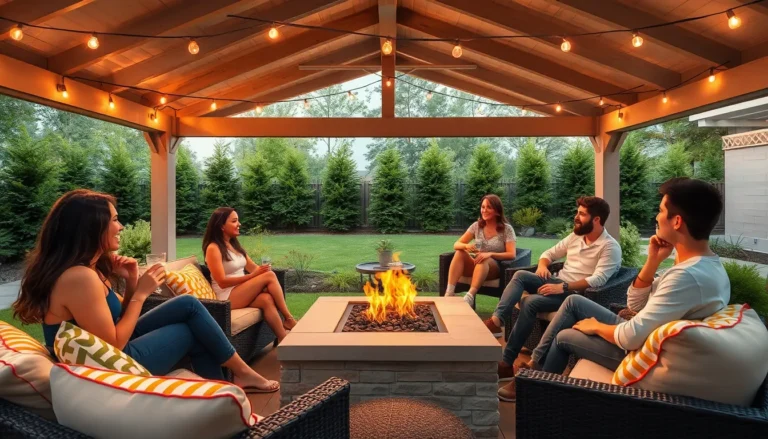Table of Contents
ToggleWhen the skies darken and the winds pick up, homeowners often wonder if their insurance policy is more than just a piece of paper. Natural disasters can strike without warning, leaving behind a trail of destruction and a hefty repair bill. But does home insurance cover these unpredictable events? Spoiler alert: it’s not as straightforward as you might think.
Picture this: you’re sipping coffee on a sunny morning when suddenly, a tornado decides to throw a surprise party in your backyard. While you might wish for a magical insurance fairy to swoop in and save the day, the truth is that not all home insurance policies are created equal. Let’s dive into the nitty-gritty of what’s covered and what’s not, so you can stay informed and maybe even chuckle a little while you navigate the stormy seas of home insurance.
Understanding Home Insurance
Home insurance provides financial protection against various threats to a property. Understanding the specifics of coverage helps homeowners make informed decisions.
What Is Home Insurance?
Home insurance is a contract between a homeowner and an insurance company. This agreement typically protects the dwelling, personal belongings, and liability claims. Coverage often includes damage from events like fire, theft, and certain natural disasters. Policies may vary in terms of coverage limits and deductibles, affecting the overall protection.
Types of Home Insurance Policies
Several types of home insurance policies cater to different homeowner needs. The most common type is the HO-3 policy, which covers a wide range of perils. HO-4 policies, or renters’ insurance, protect personal belongings for those not owning the property. HO-5 policies offer comprehensive coverage, covering both the structure and personal property on an open-perils basis. Additionally, HO-6 policies provide coverage for condominium owners, while HO-7 policies are tailored for mobile or manufactured homes.
Natural Disasters and Home Insurance

Natural disasters create significant challenges for homeowners, and understanding insurance coverage is crucial. Coverage can differ widely based on the specific policy a homeowner chooses.
Common Natural Disasters
Homeowners often contend with events like hurricanes, earthquakes, floods, and wildfires. Hurricanes typically cause extensive wind and water damage. Earthquakes can change the landscape and compromise structural integrity. Floods, essential to note, usually require additional policies for coverage. Wildfires threaten properties in vulnerable areas, destroying homes and personal belongings. Recognizing these distinct threats helps homeowners assess their risks and make informed choices about insurance needs.
General Coverage for Natural Disasters
Standard home insurance policies generally provide coverage for specific natural disasters, primarily fire and wind damage. However, flood and earthquake damages typically fall outside standard coverage, necessitating separate policies. Homeowners should also consider endorsements or additional coverage options. Depending on the insurance provider, these enhancements can offer better protection against unique circumstances. Understanding policy details ensures homeowners have adequate coverage in place before disaster strikes.
Specific Coverage Details
Understanding the specifics of home insurance coverage is crucial, especially regarding natural disasters. Homeowners face varied protections and must recognize what their policies include.
Flood Coverage
Flood damage rarely falls under standard home insurance policies. Homeowners often require a separate flood insurance policy to ensure protection against water damage from heavy rains or rising waters. The National Flood Insurance Program (NFIP) offers coverage for homes in high-risk flood zones. Such policies typically cover structural damage and personal belongings up to a certain limit. Separate coverage ensures that homeowners receive the necessary assistance, especially in federally designated flood areas. Reviewing the terms of flood coverage before purchasing is essential.
Earthquake Coverage
Earthquake damage generally isn’t included in standard home insurance policies. Homeowners usually need to purchase an additional earthquake policy to safeguard against potential structural damage caused by seismic activity. This specialized coverage helps address damages to the dwelling and personal items resulting from earthquakes. The need for this type of policy increases in areas prone to seismic events. Many insurance companies provide options that allow customization of coverage limits and deductibles. Homeowners should evaluate these policies to gain comprehensive protection against earthquakes.
Factors Influencing Coverage
Understanding various factors influencing home insurance coverage is essential for homeowners. Specific elements can determine the degree of protection a policy offers against natural disasters.
Location and Risk Assessment
Location significantly impacts home insurance coverage. Homes situated in high-risk areas face greater risks from natural disasters such as floods, hurricanes, or earthquakes. Insurers assess each property’s geographic attributes, including proximity to bodies of water, historical storm patterns, and susceptibility to wildfires. Assessments lead to increased premiums or specific policy terms. Homeowners in vulnerable zones must seek additional coverage options like flood insurance through the National Flood Insurance Program or earthquake insurance for comprehensive protection.
Policy Limits and Exclusions
Policy limits dictate the maximum amount an insurer pays for specific damages. Homeowners should familiarize themselves with these limits, as coverage for certain natural disasters may fall below adequate levels. Exclusions also play a crucial role; standard policies might not include flood and earthquake damages. Carefully reviewing the fine print ensures homeowners understand what’s covered and what isn’t. Insurers often provide endorsements to enhance coverage, allowing customization according to individual needs. Identifying these limitations enables homeowners to secure essential protection against unexpected events.
Navigating home insurance can be daunting especially when considering natural disasters. Homeowners must be proactive in understanding their policies to ensure they’re adequately protected. With certain disasters like floods and earthquakes often requiring additional coverage it’s crucial to explore all options available.
By assessing specific risks and reviewing policy details homeowners can customize their insurance to meet their needs. This preparation not only provides peace of mind but also safeguards their investment against the unpredictable nature of severe weather. Ultimately being informed and prepared is key to effective home protection.




